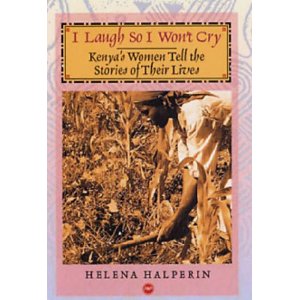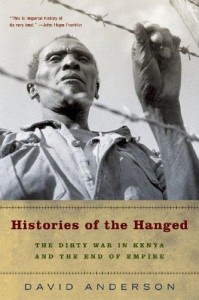 So many books have been written about Churchill, in particular about the wartime years, that another biography might be needless. However, Max Hastings presents a wonderfully balanced portrait of the man, the politician and the statesman. While in no way a revisionist history, Hastings has used distance and time to place Churchill’s immense contribution in historical perspective. It is fascinating to compare the Churchill revealed in the “War Diaries of Field Marshall Lord Alanbrooke” (from which Mr. Hastings quotes) with Hastings’ own work. Two brilliant accounts, one immediate with short term judgments and Mr.
So many books have been written about Churchill, in particular about the wartime years, that another biography might be needless. However, Max Hastings presents a wonderfully balanced portrait of the man, the politician and the statesman. While in no way a revisionist history, Hastings has used distance and time to place Churchill’s immense contribution in historical perspective. It is fascinating to compare the Churchill revealed in the “War Diaries of Field Marshall Lord Alanbrooke” (from which Mr. Hastings quotes) with Hastings’ own work. Two brilliant accounts, one immediate with short term judgments and Mr.
Hastings’s more measured and from a distance.
Churchill’s rhetoric and prose shaped the common view of the conduct of WWII. Brave little Britain fighting alone. “The Few, we will fight them on the beaches and never surrender.” How Churchill’s phrases captured and continue to color the imagination. Much less widely recognized are Britain’s problems during wartime. In a sense disguised by Churchill’s masterful language the strikes, the attitudes and the actions of the many Communist sympathizers and the often poor performance of Britain’s own Army (especially in the war’s early years) have tended to fade from popular viewpoint. Mr. Hastings deals with the good, the bad and the downright ugly without flinching and without using criticism to deflect from what was an overall immense achievement.
Whatever Churchill’s failings(and he was human), Max Hastings points out without Winston Churchill at the head of government, Britain would have probably capitulated in 1940-41. Churchill did not simply capture the British spirit, he to some extend, created it as this book makes clear. Had Churchill not done so, the outcome could have been entirely different or, at least, more protracted and bloody
without Britain as a base to launch the killer blow upon Nazi Germany.
Initially, having read many Churchill biographies I was afraid this might be a revisionist history that so
many authors are prone to write simply to sell their work. Max Hastings’ book about this great man who occupied this pivotal moment is well balanced and researched.
I highly recommend this book to anyone who is interested in this period of history. I have read many books by Max Hastings and this is one of his best. I also recommend the “War Diaries of Field Marshall Lord Alanbrooke” to gain even further perspective on the effect an individual can have on history.
Enjoy the read!
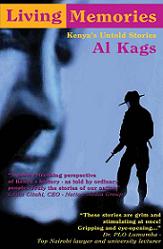 The author tells the stories of people over 65 years of age who lived during the pre-independence times.
The author tells the stories of people over 65 years of age who lived during the pre-independence times. 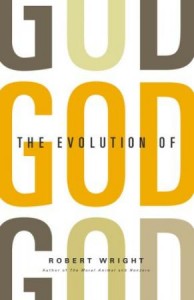 Robert Wright is an intellectually curious journalist and a fine writer whose previous books (The Moral Animal & Nonzero) I enjoyed. Wright’s new book explores the character of religion through history, and, marshalling scholarly research, shows how religious ideas developed in response to changing social and political circumstances. The explanations make no appeal to the supernatural. But Wright sees progress (however haphazard and intermittent) in
Robert Wright is an intellectually curious journalist and a fine writer whose previous books (The Moral Animal & Nonzero) I enjoyed. Wright’s new book explores the character of religion through history, and, marshalling scholarly research, shows how religious ideas developed in response to changing social and political circumstances. The explanations make no appeal to the supernatural. But Wright sees progress (however haphazard and intermittent) in 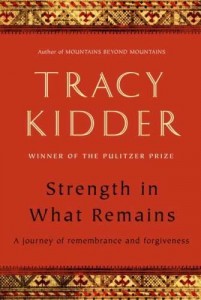 Tracy Kidder’s book, briefly, is the non-fiction tale of Deogratias. Raised in Burundi, Deo lives a nearly idyllic life until the outbreak of ethnic violence in his country replaces Wordsworth’s “of splendor in the grass, of glory in the flower” with a living hell that makes Dante’s Inferno look like a pleasant winter destination resort. Deo, a Tutsi third year
Tracy Kidder’s book, briefly, is the non-fiction tale of Deogratias. Raised in Burundi, Deo lives a nearly idyllic life until the outbreak of ethnic violence in his country replaces Wordsworth’s “of splendor in the grass, of glory in the flower” with a living hell that makes Dante’s Inferno look like a pleasant winter destination resort. Deo, a Tutsi third year 